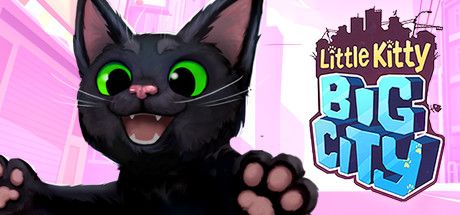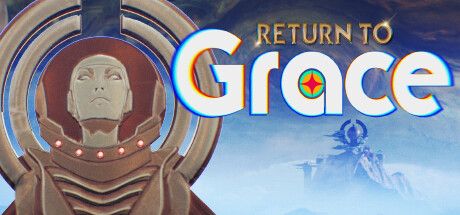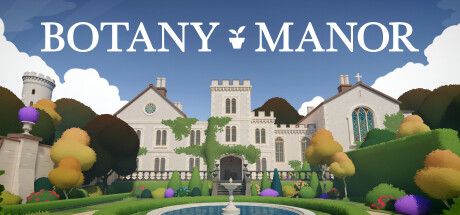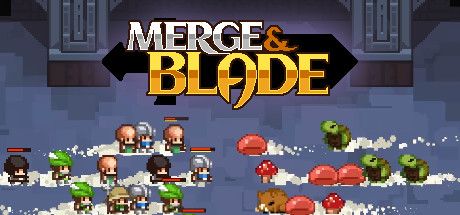The Cozy House Rules
#videogames #xbox #gamepass #xboxgamepass #walkingsimulators #cozygames
Playing Little Kitty, Big City at my niece's birthday party a month or two ago sort of set me off on a path of playing a bunch of short and cozy games, walking simulators, light puzzle games, things of that nature. I've played quite a few of them in relatively quick succession recently. I had known about Little Kitty from IGN's Justin Davis, who mentioned the game on their podcast “Game Scoop.” But I didn't really have any intention of playing it. Meanwhile my wife found out about the game from her TikTok feed and encouraged us to check it out.
When I was done with Little Kitty, I moved on and played Return to Grace, and I thoroughly enjoyed pretty much everything about that title. Sort of like Firewatch, except it's set in an alternate future where atomic age sci-fi aesthetics have dominated interior design, but then I finished that game. And then I moved on to and finished Botany Manor. And then I played and finished A Short Hike. Now I'm playing an indie game that is sort of a Might & Magic: Clash of Heroes inspired game called Merge & Blade. All of these games are relatively short, most of them don't take more than about four hours to play, so you can get through them in a single evening.
I won't be talking about A Short Hike because that's a relatively old game at this point, but I figured I might write about the others because they're much newer, and might not have as much hype surrounding them. Not only were they concise, but they were well thought out, and have a lot to offer even though they're packed into such small and short presentations.
So, without further adieu...

Little Kitty, Big City
This is probably going to be my game of the year (“GOTY”) for 2024. Honestly. I know that I'm known as a person who likes turn-based and tactical RPGs, hardcore puzzle games, and the occasional FPS. All of that is still true, but time has been a factor as I get older. I still want the dopamine hit of completing a game without having to invest more than a full work week into playing it. If I did nothing else with my time except work and play video games, then it might be acceptable to sit and grind away at whatever 100+ hour endeavor the internet says is worth my time, but there is definitely a huge and untapped market for games that only occupy a couple of hours of someones attention.
Even with it's short runtime, the game is a fully realized open world. The website “How Long to Beat” shows people putting in an average of only two and half hours to go through just the main objective, but there are quite a few side objectives, and optional collectibles that you can hunt for which can provide up to around eight hours of gameplay total. This is done in true open world fashion. Often, it's a check list of things that correspond to an achievement that you can unlock. Sometimes it's collecting a thing, sometimes it's just finding a thing, sometimes it's unlocking a thing, etc. And you run into different animal characters that serve as these quest givers throughout the city blocks that you're allowed to roam. Your opposition and minor impediments are the humans that shew you away if you happen to have a mission inside of a storefront or around where they're working. There's charm to collecting enough pigeon feathers to trade to the local raccoon so that he can open up fast-travel points for you. Or roaming around and trying to find the lost goslings.
The overall density of the world, the visual variety, and how everything is connected is quite the master class in how to do open world game design, in my humble opinion. So in that regard, even though it's such a short game, it's not an empty game. There is quite a bit to discover and explore. Eight hours approaches Call of Duty campaign territory, which I feel is probably the perfect length for a game.
Mechanically you're essentially just controlling a cat, standard third-person 3D perspective, and it's mostly platforming. The challenge of the game is to utilize the Breath of the Wild style climbing meter in the most efficient way possible to get back to where you started—an apartment located on a high rise building in the center of the map. You can expand the meter by collecting fish—so the more fish you eat, the stronger you become, which translates to being able to climb for longer and longer periods of time.
There are tons of collectible hats in the game as well. You get to use gatchapon machines and get random hats to put on your kitty while you play the game. Most of the hats didn't do anything (from what I could tell), but some of them affected the way humans interacted with you. Presumably the humans think you're cute and therefore don't bother you? That's my working theory anyway, it was never explicitly explained as to why certain hats allow you to explore certain areas without humans chasing you away. Unless I missed the tool tip or the popup text.
I could probably go on at length talking about all the different things you do in the game, but that would spoil the experience. Honestly, throw away any preconceived notions about this being a “kiddie” game, or not worth the effort to play because you're too busy

Return to Grace
The last walking simulator that I played was maybe Observation... and one of my favorite games of all-time is Firewatch. I'd say Return to Grace is on par with both of those titles in terms of narrative design, and sort of draws upon inspiration from both of those titles. The puzzles were a little lacking (then again Firewatch didn't really have any puzzles either), and there could be a bit more player agency, yet there are still multiple endings. Certain decisions that you make in the game will steer you in one direction or the other. Additionally, the short length means that its easy enough to do multiple playthroughs. I did my own, then watched my wife, and then went back for a third playthrough to try a different option that neither of us chose around two-thirds of the way through. I wasn't expecting much in terms of how much the story would change, other than some different dialog, so I was pleasantly surprised with how they handled it.
Probably my favorite thing about the game is the retro sci-fi aesthetic. I really enjoyed that aspect of the game. The art design sets it apart from its contemporary peers, and also serves as a buffer so the game doesn't need to explain as much about how things work. Much in the same way that old school sci-fi from the 50s and 60s (the Atomic Age) mainly use science and technology as plot devices, Return to Grace employs a similar suspension of disbelief. It's more about the compelling questions that the game asks of you as a person, and also what Adie is going through.

Botany Manor
This is a gem of a title. It's a cozy version of Myst. It is more or less a walking simulator in the sense that it focuses heavily on environmental clues in the form of notes strew about the setting. You play as Arabella Greene, a botanist who has just returned home to her family's Victorian-era English Manor. A publisher has agreed to purchase Arabelle's manuscript for the book 'Forgotten Flora'. She has the entire estate to herself while she conducts the research needed fill the pages of the book.
Visually the game is really stunning, the best way I can think to describe it is like The Witness mixed with some Harry Potter. The flowers that you grow from the seeds that you find and document are all quite whimsical, and they each have special climate needs for them to sprout. None of it is all that scientific, but I don't really care. It's fascinating and fun, and the puzzles are inspired if not entirely accurate. There were a few that don't really make sense outside of the game world, but they weren't jarring enough to break the immersion.
In a way it's a bit like a bunch of escape rooms all linked together, but the context clues in the setting sort of blur into each of the puzzles. You're far off from a clue when you're near where the puzzle needs to be solved, and virtually everything you can interact with has some purpose. The game is smart about not forcing you to have to hold more than a few pieces of information in your head at any given time. Which is a good thing, because there was no journal system that I could find. The book that you're writing and keeping notes in only has a brief description of the clues that you then have to associate with the flower that you're attempting to grow.
This game is just fine the way it is, but I wouldn't mind a sequel or a spiritual successor to this game that has a bit more meat on the bones, more complex puzzles, and a journaling system that lets the player juggle more clues, maybe even having to hold on to clues for longer than 10 minutes at a time. By the same token, this is a great game to give someone who isn't sure if they like puzzle games.

Merge & Blade
This is a quaint and interesting indie game that is a bit like Might & Magic: Class of Heroes. It's kind of like Doctor Mario meets Candy Crush with a medieval pixel-art veneer.
I haven't made much progress in M&B because there was a bug that prevented players from saving, but it looks like that bug has been worked out and now the game records your progress. I've played through the beginning 4 chapters of the campaign on 3 different occasions now. Sadly, tonight, I didn't really have the time to play past chapter 4, like I did the other night on my second attempt, to see if the game would save my progress after rebooting it.
Nevertheless, I'm intrigued by it. It's random like Vampire Survivors but still somewhat strategic. It's a match 3 game, but it's also a bit of a minimalist RTS. But, it could use a little more pizzazz in the visual department. Because the first review that I found on YouTube mentioned that the RNG was not forgiving enough for the player to form any type of a strategy, and I disagree with that. Those RNG elements are the same things that make slot machines interesting. They just need to play up the slot machine elements of the game more, have more sounds, numbers bouncing off of the enemy heads, and things like that. Maybe even have different patterns for the merging of your soldiers.
There are also persistent upgrades that unlock over time as well, which open up new unit combinations and things like that. So, the RNG becomes less and less of an issue the more that you play. I'll have to report back once I'm farther along.